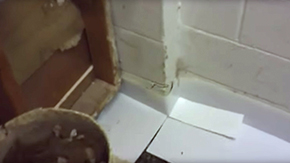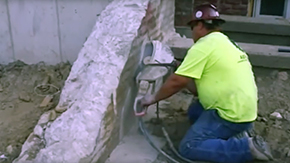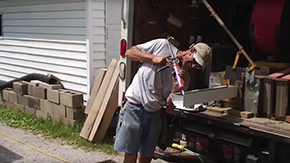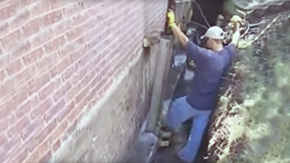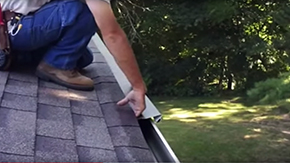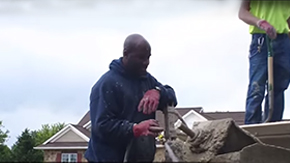Concrete Contractors in Davenport, IA
The Simple Guide to Davenport Concrete Cutting, Concrete Leveling, and Related Services
Concrete contractors are specially trained and experienced individuals or teams that are able to manage concrete in a wide range of stages, from the unmixed combination to the hard finished products that are produced. Qualified concrete contractors can design intricate plans with expert industry knowledge and experience, which allows homeowners to create their own custom products for everything from new construction tasks to renovations. The contractor oversees delivery and ensures that the concrete is poured correctly. The concrete is then prepared by an experienced contractor to produce a smooth and level surface that will be able to cure properly. Ensuring the curing process is a key factor when it comes to mixing, pouring, and perfecting the structure of the concrete.
Review Damage
There are numerous types of concrete work options that an experienced concrete contractor can help you create. One of the most common reasons to hire concrete contractors is for foundation repairs. Foundation damage, from small cracks in a concrete wall to repairing a bowing concrete wall, should always require the experience of a knowledgeable concrete contractor to make repairs. Fixing problems with a concrete foundation is critical in order to prevent the risk of further damages. Cracking and bowing are obvious signs of a structural problem and it can worsen if it goes unrepaired. Some concrete contractors specialize in custom types of concrete work, such as:
- Decorative Overlay - This type of concrete treatment is often used to repair damage and cracks in driveways and patios. Instead of breaking up and removing the current concrete, a decorative overlay is installed over the existing concrete. The process can be customized in a range of colors and designs.
- Stamped Concrete - This process involves stamping a design into poured concrete. Designs are often created to resemble other types of building materials, such as stone, slate, or brick. Stamped concrete is typically much less expensive than the installation of other materials and the finished product will be more durable and require less maintenance.
Concrete Hardscaping Upsides
Concrete is an extremely versatile and durable material. Whether you are considering hiring concrete contractors to add a driveway, retaining wall, or patio, there is a vast array of benefits to designing your landscaping projects with concrete. A few reasons to consider using concrete for your new landscape features include:
You Have Options to Customize
Concrete contractors can create concrete products that mimic most other types of hardscaping materials and it is more durable than other material options. Concrete can be stamped with a logo or pattern to match your specification. It can also be poured into just about any shape you want and colored to match the exterior of your home, patio, or other features of your home or landscaping.
Quick Installation
Unlike many of the other hardscaping materials, concrete is easy to install because it doesn’t require the time-consuming process of individually cutting and laying stones. Once the contractor has mixed, poured, and leveled the surface, you will have to wait a few days for it to cure, but it is still a much quicker process than other methods.
It Doesn't Cost an Arm and a Leg
The cost of concrete hardscape structures depends on the size and complexity of the job. However, it is typically less expensive than most of the other options, especially if you have chosen one color and one pattern, such as a traditional driveway. It requires less upkeep than other hardscaping, which means you will also spend less money over time on maintenance.
Environmentally Friendly Option
Because concrete is primarily made from limestone, which is a natural stone, it is an environmentally friendly material. Concrete is made in the exact amount that is needed for a particular job, so it isn’t over-produced like many other types of materials. Concrete is generally available locally, so there isn’t any overseas or out-of-state shipping, which reduces air pollution and emissions.
Perfect Choice for Commercial Properties
The use of concrete when building commercial properties is much more preferable to the other available building materials due to the wide array of financial and environmental benefits it provides. Some common reasons concrete is the most popular construction material used include:
- Impressive Strength - Concrete is composed of three primary substances: cement, water, and a dry aggregate, such as sand. The stronger the concrete, the higher the density ratings, which is achieved by reducing the water content and aggregate and increasing the cement proportions. The material gets much stronger as it dries. Although it typically takes only a few days to adequately dry for use, the moisture remaining inside the concrete continues to have a chemical reaction that binds the cement and aggregate together, creating a denser and firmer surface with each year that passes.
- Minimal Maintenance - Non-porous and porous concrete can both be utilized, depending on the specific needs of the project. Both types of concrete require very little maintenance, but it should be routinely inspected to prevent the risk of cracks even though non-porous types of concrete lower the risk of any mold development. When cracks appear, qualified concrete contractors easily repair them through simple restoration techniques. Compared to certain materials, such as wood that requires continuous attention to minimize the risk of rot and splintering, concrete is the ideal choice in building materials.
- Environmental Advantages - Unlike some materials, such as asphalt that prevents water absorption in soil, concrete provides natural water retention to allow rainwater to absorb into the ground below. Stormwater carries pollutants and waste particles from walkways and roads into the local water sources, so stormwater runoff is a serious environmental concern. Concrete helps to reduce flooding and erosion around commercial buildings. It is also naturally fire-resistant, can withstand major storms, and is impervious to termite infestations, so it co-exists perfectly in nature.
- Heat Reflective - The properties of concrete reflect heat rather than absorb it, so it reduces the urban heat island effect. The exterior and the interior of buildings that are surrounded with heat absorbing materials, such as asphalt, will have escalating temperatures, which puts an undue demand on the cooling system during warmer months. This heat energy is then transferred by contact to rainwater, which runs over impervious asphalt surfaces to nearby rivers, ponds, and streams. The elevated water temperatures are extremely dangerous for wildlife and it promotes bacterial growth. Concrete is a heat-reflective, safer material that reduces cooling costs in warm months and keeps temperatures at manageable levels.
Concrete is one of the most commonly used and most durable construction materials around the world. There are endless uses for concrete, including walkways, roads, driveways, patios, and entire buildings. Concrete is a flexible asset to homeowners and commercial property owners that wish to construct long-lasting structures. Concrete installation, concrete cutting, and concrete levelling all require the experience and knowledge of competent contractors.
To learn more information about the work concrete contractors do in the area of Davenport, IA, contact Tomlinson Cannon.




